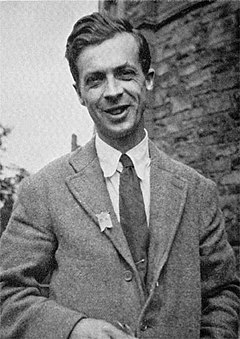Julian Huxley | |
|---|---|
 Huxley in 1922 | |
| 1st Director-General of the UNESCO | |
| In office 1946–1948 | |
| Succeeded by | Jaime Torres Bodet |
| Personal details | |
| Born | Julian Sorell Huxley 22 June 1887 London, England |
| Died | 14 February 1975 (aged 87) London, England |
| Spouse | |
| Children | |
| Parents | |
| Relatives | Aldous Huxley (brother) Peter Eckersley (cousin) |
| Alma mater | Balliol College, Oxford |
| Known for | |
| Awards |
|
| Scientific career | |
| Fields | Evolutionary biology |
| Institutions | |
| Military career | |
| Service | British Army |
| Years of service | 1917–1919 |
| Rank | Second Lieutenant |
| Unit | |
| Battles / wars | First World War |
Sir Julian Sorell Huxley FRS[1] (22 June 1887 – 14 February 1975) was a British evolutionary biologist, eugenicist, and internationalist. He was a proponent of natural selection, and a leading figure in the mid-twentieth century modern synthesis. He was secretary of the Zoological Society of London (1935–1942), the first director of UNESCO, a founding member of the World Wildlife Fund, the president of the British Eugenics Society (1959–1962), and the first president of the British Humanist Association.
Huxley was well known for his presentation of science in books and articles, and on radio and television. He directed an Oscar-winning wildlife film. He was awarded UNESCO's Kalinga Prize for the popularisation of science in 1953, the Darwin Medal of the Royal Society in 1956,[1] and the Darwin–Wallace Medal of the Linnaean Society in 1958. He was also knighted in the 1958 New Year Honours, a hundred years after Charles Darwin and Alfred Russel Wallace announced the theory of evolution by natural selection. In 1956 he received a Special Award from the Lasker Foundation in the category Planned Parenthood – World Population.